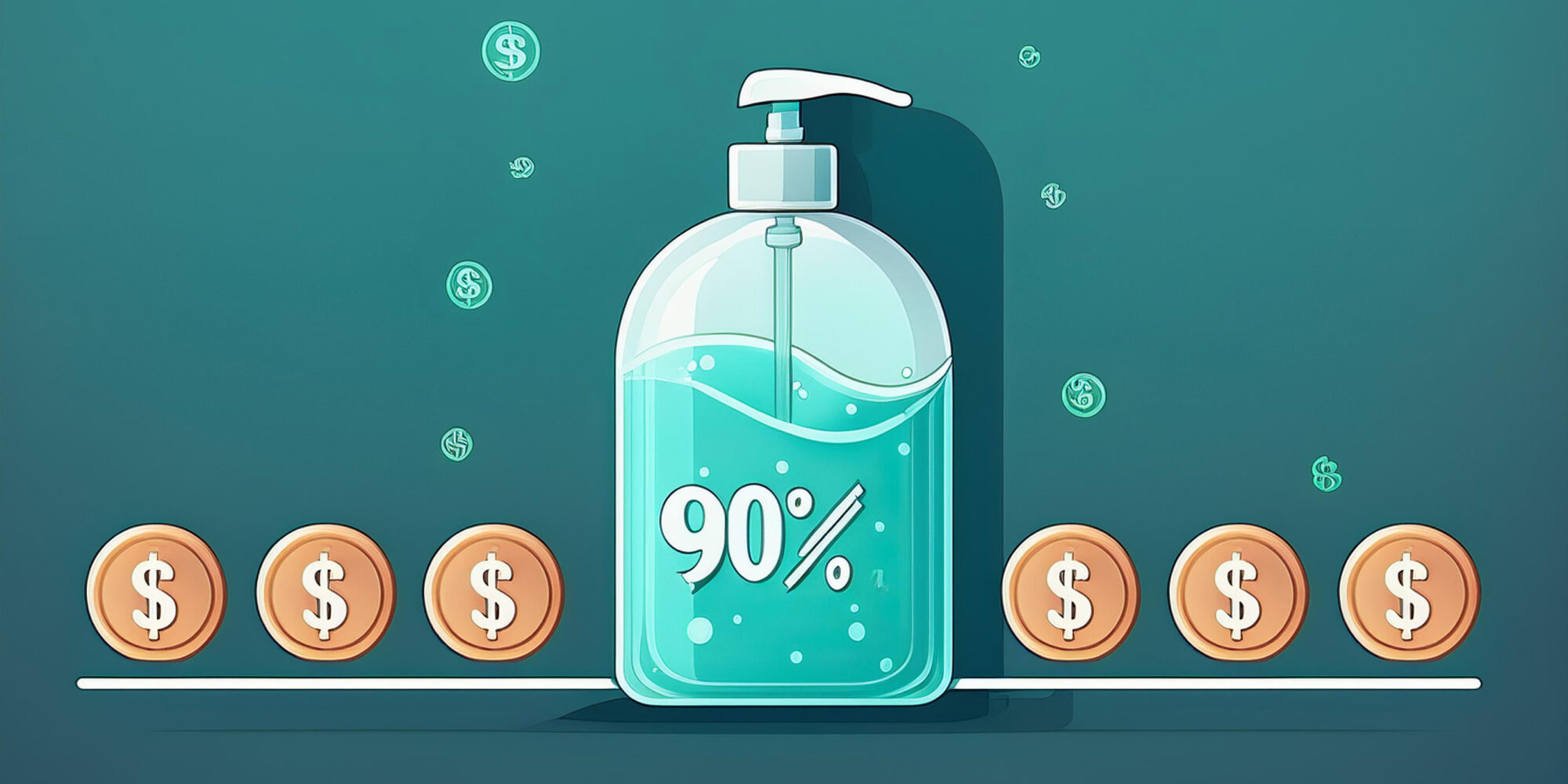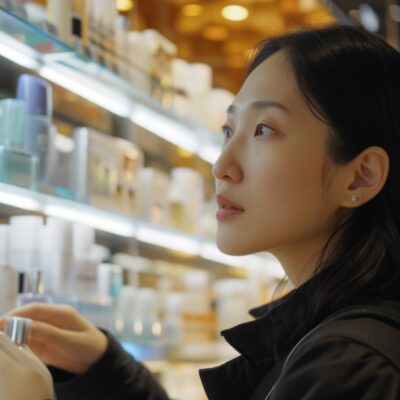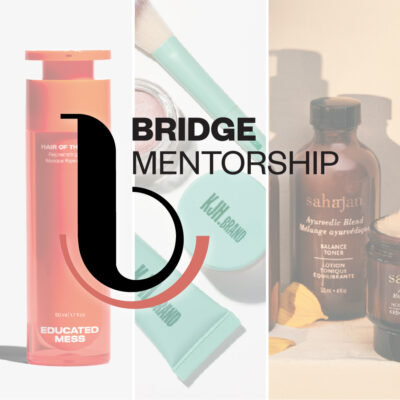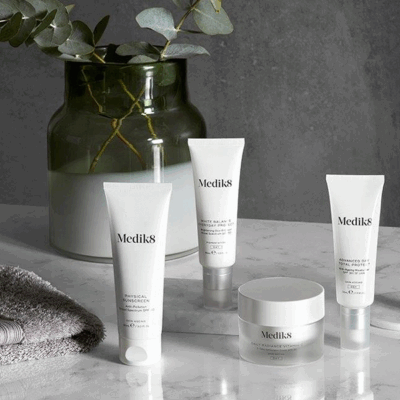
Are Beauty Investors Really Looking For 90% Margins?
In a recent podcast interview with the publication Glossy, Richard Christiansen, founder of Flamingo Estate, shared he’s had 160 investor meetings over the last two years. From those meetings, he says he learned personal care investors are looking for 90% margins across products and don’t care about brand or founder stories. He reports Flamingo Estate has a 72% margin on its hand soap.
We were wondering if Christiansen’s experience aligns with beauty investors’ expectations generally. For the latest edition of our ongoing series posing questions relevant to indie beauty, we asked 10 such investors the following: Are you looking for 90% margins? If not, what’s the margin range you’re looking for? Do you care about brand or founder stories? If so, what do the stories need to convey in the current market?
- Daniel Faierman Partner, Habitat Partners
Ninety percent margins in personal care are rich. That would probably require some combination of insanely cheap ingredient inputs and/or a super high price point. I've seen this in fragrance a bit, but not in other subcategories regularly.
In personal care (body care, haircare, oral care, etc.), we look for gross margins in the 50% to 65% range. In beauty (skincare, cosmetics), we look for gross margins in the 65% to 80% range. By gross margin, we mean net revenue minus product COGS, freight in/out and warehousing/fulfillment.
Founder story for us is a nice-to-have bonus as it often ignites an endless personal passion and drive, which is especially important in challenging times. With that said, we skew more toward valuing relevant historical industry experience—we call this founder-market fit—as opposed to seeking a founder that is solving a problem that originated from something that he or she encountered in his or her prior personal life.
Sometimes this leads to overconfidence bias in which a founder believes that the problem he or she encountered in his or her personal life is more widespread than it is in actuality.
- Jaclyn Johnson Co-Founder and CEO, Cherub
For me, the founder is still my No. 1 reason for investment. Their drive, passion and skill set are ultimately what will push the business forward.
Margins are crucial for the success of any product business, but, that being said, 90% is on the higher end and something often achieved over time and at scale. I think it truly depends on your funding thesis as an investor. If quick growth at all costs is your goal, then a 90% margin business might make sense for you.
For a company like Flamingo Estate, it’s a brand built around storytelling and quality. The path to a 90% margin is going to be longer and slower, but, for the right investor, they understand the long game and the power of a brand like that.
- Lisa Sugar Partner, Sugar Capital
Sure, 90% margins are the dream. Who wouldn’t want that? But let’s be real, in beauty and CPG, most brands can't launch at 90%, and plenty of successful ones will never hit that number. What we look for is a healthy range, somewhere between 50% and 80% as the brand grows and scales.
New brands might start closer to 30% to 50%, and that’s OK as long as there’s a plan to improve over time. The key is sustainability, smart pricing and making sure customers feel like they’re getting real value or a luxurious item.
We care deeply about brand and founder stories! It’s actually one of the first things we ask about when we’re getting pitched. We want to hear the “Marvel origin story,” the moment of inspiration or “aha!” that brought the product to life. But it’s not just about the story, it’s about how the founder tells it. Are they passionate? Are they fun? Do they make us believe in what they’ve created?
Right now, the stories that stand out are the ones that feel authentic and full of personality. Today’s customers want playful, colorful, bold brands, no more hiding behind neutral palettes and too-cool-to-care minimalism. They want to feel something! If the story makes us smile or inspires us, that’s a brand we can get behind.
- Joe Seager-Dupuy Director of Investment, True
We wouldn't say no to 90% margins, but it's certainly not table stakes to be that high. There is a lot of nuance, both in the definition and presentation of gross margins, so we try to avoid blanket thresholds.
That said, if you look at the most iconic public beauty companies, they are usually north of 70% on reported gross margins, which is likely weighted down by a high proportion of revenue coming via indirect channels like third party retail. So, DTC should typically be higher than that as there isn't any retailer margin to pay.
Without a brand and clear purpose, the business is built upon a house of sand, and it's important to focus on it from the start. It's much harder to authentically retrofit a brand to a product or business after the fact. A brand is not just a name or logo, it’s the operating system for how a business is built and run.
It makes financial sense, too. In the long run, a strong brand should be an enabler of differentiated margins: the value shows up in the economics of the business as pricing power, lower acquisition costs, higher retention and so on as your customers show far greater affinity and are more likely to become brand ambassadors.
In reality, a compelling brand and solid unit economics are both necessary, but neither are sufficient. Unless you have real IP, a product without a brand is a commodity, and commodities can’t maintain abnormal margins over time and at scale as there is no moat.
At the same time, a brand without sustainable economics is a creative project, not a business. The brand is crucial, but, ultimately, if it doesn’t make sense financially, it won’t be attractive to investors and will struggle to scale.
The most important thing is to have a differentiated point of view and be authentic about it. On the former, beauty is such a competitive space that blending in with the crowd just won't cut it. Being differentiated means being different.
On the latter, consumers are much savvier now with information much more distributed and accessible than ever before. If the founder or brand is telling conflicting stories with their words and their actions, they'll get found out quickly!
- Melissa Gross Principal, Era
Strong margins are important, but not in isolation. Margins matter because they provide flexibility for a brand to invest in critical areas like marketing, storytelling and operational growth.
However, we don’t expect a blanket 90% margin. It’s more nuanced than that. Margin benchmarks vary depending on a brand’s category and price positioning. E.g., what’s realistic for a luxury skincare brand will differ from a mass-market product. For us, the focus is on whether the margins are sufficient to sustain growth while staying true to the brand’s promise.
We care deeply about brand and founder stories. A founder’s passion and deep connection to their mission permeate the brand’s ethos and drive its authenticity. Consumers today want brands with a clear purpose and a story that feels real. We look for founders who can clearly articulate why their brand exists, what unique value it brings, and how it aligns with their customers’ lives and values.
Ultimately, strong financial foundations and a meaningful narrative work hand in hand. A powerful story captures hearts, while solid margins provide the means to keep telling it.
- Patrick Collins Managing Partner, Firelight Capital
Great margins are always attractive, but it is more important that we get good value from an investment standpoint, and that we avoid overpaying for an opportunity with strong metrics that may not be sustainable long term.
As far as desirable margins are concerned, we will look at fully loaded gross margins as opposed to just direct product margins, and these vary by the distribution channel used to get the products to customers, so we will have different benchmarks for a brand that sells wholesale versus one that sells strictly direct-to-consumer online.
How well a brand resonates with consumers and differentiates itself in the market is paramount for us. We focus intensely on understanding a brand’s DNA, what the brand is today and where we can take it longer term. Compelling founder stories are important in so far as they inform a brand’s story and its connection with consumers, but not essential to a brand's success.
- Cristina Nuñez Co-Founder and Partner, True Beauty Ventures
I can confidently say that True Beauty Ventures’ investment philosophy does not fit with the 160 other investors that Richard met with over two years. Strong product margins are incredibly important and a nonnegotiable for us, but we understand that they can vary greatly by category in beauty.
In particular, we would expect personal care to have lower margins than luxury skincare, where, yes, one would traditionally expect product margins of 90% or more given the high MSRP. Experienced beauty investors understand these dynamics and wouldn’t set a blanket product margin threshold irrespective of category or distribution channel. That just shows a lack of understanding of the industry.
For us, the strength of the brand and founder stories are absolutely critical when deciding whether or not to invest, the opposite it seems of Richard’s past experience with investors. We always start there when speaking to a founder and seek to fully understand their “why” as part of our diligence. If we don’t think the story is compelling or differentiated enough, we will not pass go. That story forms the foundation on which to build a truly great brand.
The reality is there are too many beauty brands and products out there that look and sound the same. It is why we believe it takes a narrow sector specialist lens to find those unique opportunities where a brand demonstrates the right “special sauce”: compelling founder story, differentiated brand positioning, excellent product and margins, engaged and loyal customers and strong DTC/retail performance. Those investment opportunities are rare, but it’s our job to find them.
- TINA BOU-SABA Investor
I am surprised Richard Christiansen felt that investors didn’t care about the story, especially since the Flamingo Estate story is unique and compelling. But I certainly don’t dispute his experience! I just wonder what type of investors he met with. I feel like beauty specialist investors care a lot about the founder story.
Of course, we care about financials, too! It all has to come together. I don’t have a firm product margin cutoff, and I’d note that it varies across categories and segments (i.e., mass versus prestige). Generally, I’d like to see 75% to 80% or so. Of course, there is also a scale factor. We might start at 75% and shoot to get to 80% with greater volume, for example.
I love brand and founder stories, but we must remember that, in beauty, these stories are ultimately for the consumer, not the investor. As an investor, the “why” behind a founder and business is crucially important, but I always keep in mind that the audience is the brand community. I think about how the founder story will resonate with that group.
In other words, it’s not about me! My job is to try to evaluate how the story behind a founder-led brand will inspire and engage the targeted community.
- Maggie Abeles VP, NewBound Venture Capital
We often speak with our portfolio founders about how building businesses is like parenting a child. Context, experience and support matter a lot, and every decision you make feels (and is) very important. However, founders are also constantly resource-constrained, forcing them to make strategic choices and prioritize spending accordingly. We understand that and do our best to consider the entire context, approach and accomplishments of each founder we meet.
To me, an entrepreneur's story and the brand ethos matter very much, as does their ability to create a product with strong margins compared to category averages, generate repeat customers, cultivate a strong community and demonstrate capital efficiency. My point is that it all matters, and we assess any new investment in a startup company accordingly.
Investors are constantly working to distill large amounts of information to find and execute long-term economic partnerships that carry material risks, where the leaders around the table matter greatly. We encourage founders to see it the same way: when done right by both sides, it's not a sales deal, it's a marriage.
- Janice Cargo Partner, Active Partners
Beauty and personal care have the highest margins across consumer packaged goods, but it does depend on the product and price point. Strong margins support a clear path to profitability while providing flexibility to invest in the brand, marketing and innovation to fuel growth.
While high margins are important, they need to be paired with a compelling brand story that resonates with consumers, creating customer connections, nurturing loyalty and driving long-term sustainable growth.
A business which hasn't built this emotional connection will struggle to build a loyal community around it. We also know in today's market that consumers are increasingly making purchasing decisions based on alignment with their personal values. To succeed, a brand story should convey authenticity, clearly differentiate from competitors and show a deep understanding of its customer's needs.
For example, one of our portfolio brands Facetheory recently underwent a full rebrand to build out its retail presence and establish itself as a sustainability-focused masstige beauty disruptor. We are actively supporting the brand's long-term awareness building and brand storytelling efforts as we understand that today's consumers are buying into a brand's ethos and core values just as much as they're buying a tube of moisturizer.
If you have a question you’d like Beauty Independent to ask beauty investors, please send it to editor@beautyindependent.com.





